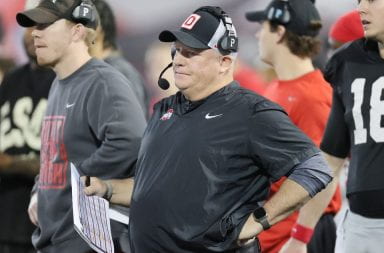As the number of people choosing to pursue an online degree instead of attending classes on a university’s campus continues to rise, employers seem to disagree on whether they would hire applicants with a degree from a brick and mortar university over an applicant with a degree from an online institution.
Gina Valent, a consultant for Randstad, a Columbus recruiting company specializing in manufacturing and logistics, said when it comes to hiring, her company does not consider where applicants graduated from. Instead, Valent said what matters is that applicants have experience working in the field.
“The actual degree, if it applies, is what the client is looking for, skill-wise and education-wise,” Valent said.
Similarly, Glenna Halligan, a marketing coordinator for Dawson Resources, a staffing firm in Columbus, echoed Valent, saying employers look for experienced workers.
“A lot of the times, the positions you’ve held and where you succeeded matters way more than if the diploma hanging on a wall is from walking on a university or getting it on a computer,” Halligan said.
Aside from job skills and experience, Valent said Randstad has hired graduates with a degree from an online university.
“A degree is a degree, an education is an education, regardless of where the person may have gotten it from,” Valent said.
But some students said an online education wouldn’t be enough for them.
Misha Rickard, a third-year in sociology, said she believes pursuing an online education would be an inconvenience for her.
“I need more hands-on learning, I need to actually see people and go places to feel motivated,” Rickard said. “I can’t wake up and make myself do stuff.”
T.R. Massey, a spokesperson for Battelle Memorial Institute, a Columbus-based scientific research and development organization, said graduating from a traditional university is required from all applicants, given the nature of the jobs available at Battelle.
“Battelle is a special case, we’re science-oriented,” Massey said. “We’re hiring people with master degrees and Ph.Ds, people who would have necessarily been in a laboratory environment in order to get their education.”
Massey also said despite the tendency for the science and research development industry to hire applicants with degrees from a brick and mortar university, he said he wouldn’t be surprised if that all changed in the future.
“The standard in our industry … (is) that somebody comes from an accredited university with the background that we have all expected up until today,” Massey said. “That is not to say that in the future, that won’t change.”
Melissa Venable, education writer for OnlineCollege.org and online adjunct instructor at the University of South Florida, said there are no downsides to pursuing a college degree from an online university. Ultimately, it depends on each individual and their personal preferences, she said.
“If you live in an area and you’re not really equipped or able to relocate to go to school, maybe you have a job or you have family responsibilities and there’s not a program in your area,” Venable said, “an online option might be a good way to go.”
Ryan Rauzon, a spokesperson for University of Phoenix, said the university’s focus is to provide easy access to education for “working adults.”
“That’s what University of Phoenix has always been about, working adults. Folks who … maybe they have kids or their parents got sick, or they serve in the military,” Rauzon said. “And they need to go online or they need to go to our ground campuses for evening classes.”
Student at UOP are given two options: they can either pursue an online degree or they can study at one of the university’s almost 200 campuses, distributed across the country.
Rauzon also said UOP has not collected data measuring the success of UOP students in landing a job with their online degrees.
“The university hasn’t been able to measure with data the attitudes and behaviors of employers,” Rauzon said. “I will say that employers are rightly looking for experienced candidates who have a bachelor’s degree.”
Venable said many variables play a role in determining the effectiveness of an online or even a traditional degree.
“How a course is developed and designed, the characteristics of the instructor, the characteristics of the students that happen to be enrolled in that term, the type of content that’s being covered,” he said.
Venable also said students have an equal opportunity in obtaining a degree from either institutions.
Kelly Lash, a third-year in psychology, said she thinks attending a brick and mortar university will be “reputable” when she’s trying to find a job.
“Just getting the social experience and seeing how campus life and how academia work is a really good experience,” Lash said. “It’s more socially acceptable for a degree and I feel like that’s a lot more reputable when you’re applying to places.”


